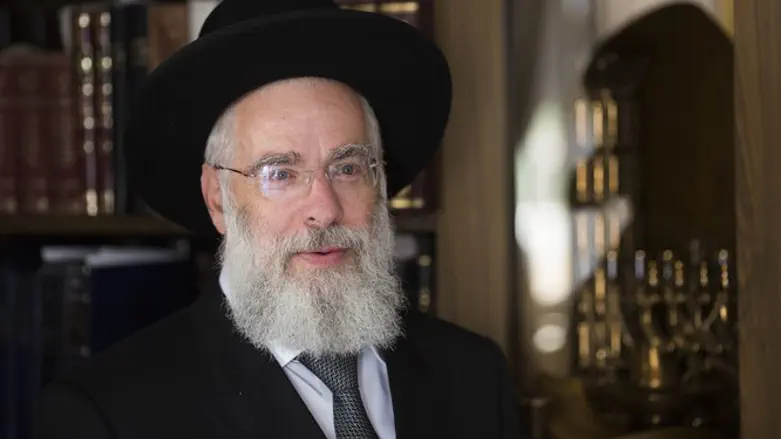
In the opening verse of our parasha, we are introduced to Noach: “Noach was a righteous man, perfect in his generations; Noach walked with God”. The structure of this verse presents a basic exegetical 
He lived through the devastation of the mabul (deluge) and he lived to see the travesty of the Tower of Bavel. difficulty:
difficulty:
Why does the verse use the plural form of “dorotov” [in his generations]?
In what sense was “Noach perfect in his generations”? After all, each person lives only once - in his generation!
The Meshech Chachma notes that Noach lived in two completely different time periods. He lived through the devastation of the mabul (deluge) and he lived to see the travesty of the Tower of Bavel. He was a survivor who saw a world destroyed and he was a believer who survived a world dispersed.
And yet, despite these complicated life experiences, Noach held onto his ideals. Noach was able to maintain his spiritual and moral equilibrium. Noach was “righteous” despite the fact that he was surrounded by shameless immorality in the corrupt generation that preceded the flood, and Noach was ”perfect” despite the ideological depravity that abounded in the generation that united to contest God by constructing the Tower of Bavel.
Rashi famously adds another element to this discussion: “In his generations” - Some of our Sages explain this to his credit: He [Noach] was righteous even in his corrupt generation; it follows that had he lived in a generation of righteous people he would have been even more righteous, owing to the force of good example.
Others however, explain this verse as critical [of Noach]: Only in his generation, was he considered righteous, had he lived in the generation of Avraham he would have been insignificant.
At first glance, Rashi’s explanation is puzzling. The Torah seems to present an indisputably positive picture of Noach. Why would Rashi cite an approach that chips away at this halo? Why insinuate that Noach was hardly righteous at all?
It is necessary to understand Rashi’s comment in its proper context. The second opinion cited by Rashi is not a frank assessment of Noach, as much as a juxtaposition of Avraham and Noach, or more precisely the “generations” of Avraham and Noach.
Avraham was a man of influence, a teacher par excellence. He called out in the name of God and encouraged others to do so too. Avraham established a generation. Avraham built a legacy of the faithful – “the souls that they made in Charan". He slowly but surely made an impact on the world in which he lived.
In contrast, Noach was a person of deed, not a person of influence. He was a righteous man, and his good deeds comprised his legacy He did exactly what God asked him to do, but he did not extend himself. He did not cultivate a following, he did not build a generation.
Noach’s failure in reaching the people of his generation does not imply that he was wicked. It rather speaks of a lack of faith in himself and his ability to impact the people of his time, or perhaps a lack of faith in the people of his generation and their capacity to change.
Noach felt that he was not up to the task. Noach feared that the people would not be receptive to his message. Accordingly, Noach did precisely what God asked of him, but nothing more. He followed through perfectly on God’s directives. He was “righteous” and he “walked with God”, but he did not challenge his environment to embrace sustainable change.
He did not start a movement, nor did he build a generation. Despite Noach’s righteousness, the generations in which he lived remained largely unaffected by the power of his personal ethical code and his steadfast faith in God.
Rabbi Yaakov Shapira is the Rosh Yeshiva of Yeshivat Mercaz HaRav in Jerusalem